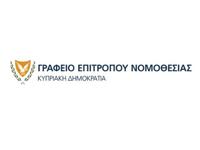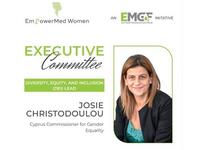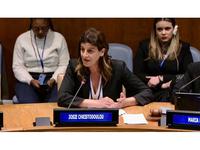Press Releases

29-03-2025 14:22
Address by the Commissioner for Gender Equality, Ms Josie Christodoulou, at the event titled “Mind the Wiki Gap: Closing the gender gap on Wikipedia”
“Wikipedia is a knowledge institution governed by issues of power. Those who can dominate its technocratic system of representation emerge as intermediaries of power within this environment. And those who can't master this system remain excluded. Unless Wikipedia radically changes its own knowledge production culture, women will remain in the margins”.
These are the words of professor Núria Ferran, co-author of a study published in December 2023, based on an exploratory review of Wikipedia from 2007 to 2022. Her team’s research revealed persistent gaps in gender representation in content and biases in editing and participation. Another study published in January 2025, by three researchers from the University of Brisbane, on the so-called “Wikipedia Gender Dashboard” found that between 2000 - 2022, while women accounted for 49.6% of the global population on average, they represented only 17.13% of English Wikipedia. Moreover, males dominated all the subclasses of ‘Person’ in Wikipedia except for BeautyQueen, Model, and PlayboyPlaymate which were female-dominated.
Dear friends,
In the digital age, the internet serves as the primary source of information for millions of people globally, and Wikipedia is one of the world's most influential knowledge platforms. Yet, studies, like the ones I mentioned, indicate that only a fraction of the content available online accurately and sufficiently represents women. This absence not only perpetuates gender stereotypes, social biases, and the overwhelming prevalence of the male narrative, but it also limits the access of future generations to a balanced view of history, science, culture, and innovation.
We cannot afford to let this gap persist. We must act now, not only to rectify the disparities of the past but also to shape a more inclusive and equitable future. By enhancing women’s presence on platforms like Wikipedia, we not only promote fair representation, but we also create an environment where young girls are encouraged to follow in the footsteps of women role models who have fought for their aspirations and have shaped the world decisively.
The Wiki Gap initiative is an essential step in this direction, as it recognises the imbalance that exists on the internet, where information about women and from women on their achievements and their defining influence across all sectors of social activity remains largely insufficient. More importantly, the Wiki Gap initiative calls for action to ensure that women’s stories, accomplishments, and contributions are no longer sidelined but instead are celebrated, acknowledged and promoted.
Through initiatives like Wiki Gap, we empower women to take ownership of the narratives surrounding women’s lives and legacies.
Each article we write, each story we add, and each biography we update contributes to dismantling the invisible barriers that have silenced women’s voices for too long.
However, we must not forget that this is a collective task which requires the collaboration and support of many actors: the state, activists, content creators, academics, technology experts, platform administrators, and many others. Together, we can push for policy changes that prioritise gender equality in digital spaces and continue to develop platforms that foster diverse and inclusive narratives.
Women’s contribution to society’s advancement and sustainability is as essential as men’s. Without gender equality, no society can be considered truly just. In this context, my office coordinates and monitors the implementation of the National Strategy for Gender Equality which includes specific and targeted horizontal actions aiming to promote gender equality in all areas of activity. In addition, we organise awareness campaigns, under the umbrella title “HER Story”, to promote women’s equal participation and leadership in traditionally male-dominated occupations by providing successful role models. Such campaigns have already run for the STEAM and maritime fields and we are currently working on the next campaign, “Women in Diplomacy”, because it is important for women’s voices to be heard and for their rich perspectives to be utilised.
Before I conclude, I want to mention that in addition to equal representation, issues of safety for women in the digital space are also of utmost importance and of priority for Cyprus and the European Union (EU).
In the context of the EU presidency trio, Poland is focusing on mainstreaming gender in the digital space and shaping gender equality in Europe’s Artificial Intelligence (AI) era, including equal access to digital spaces, and addressing biases in AI and technology. During our country’s presidency, in the first half of 2026, we will be addressing the threat of cyber violence and abuse against girls. Emphasis will be given to the protection of young girls from evolving online threats, including cyberbullying, sexual harassment, image-based abuse, and other forms of digital exploitation.
Dear friends,
I am certain that today’s discussions will form an important tool in our collective search for practical ways to bridge the gender gap on the internet and promote digital equality, particularly on platforms like Wikipedia, where women have historically been underrepresented. Together, we can help close the Wiki Gap and create a future where women and men are equally represented in the digital space.
Thank you.
(AA/GS)
Relevant Press Releases

05-03-2025 12:58
New Publications by the Office of the Law Commissioner

05-03-2025 12:55
New Publications by the Office of the Law Commissioner


05-02-2025 10:34
New Publications by the Office of the Law Commissioner



